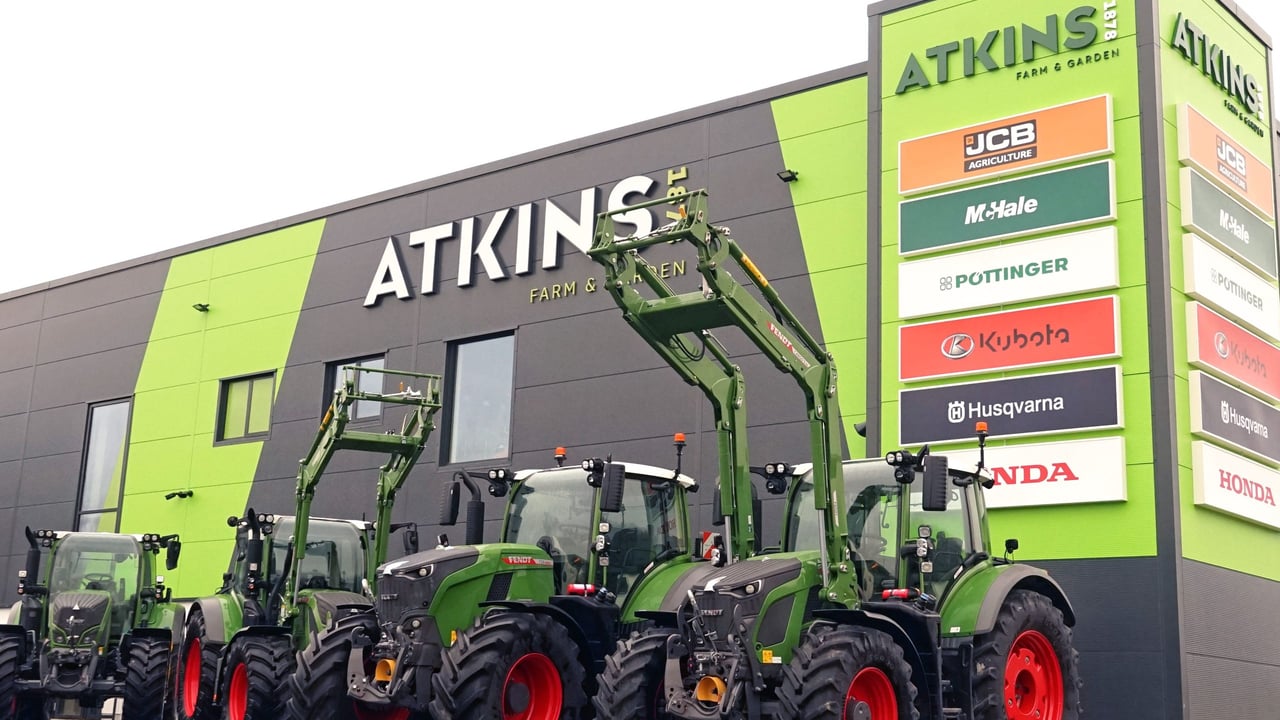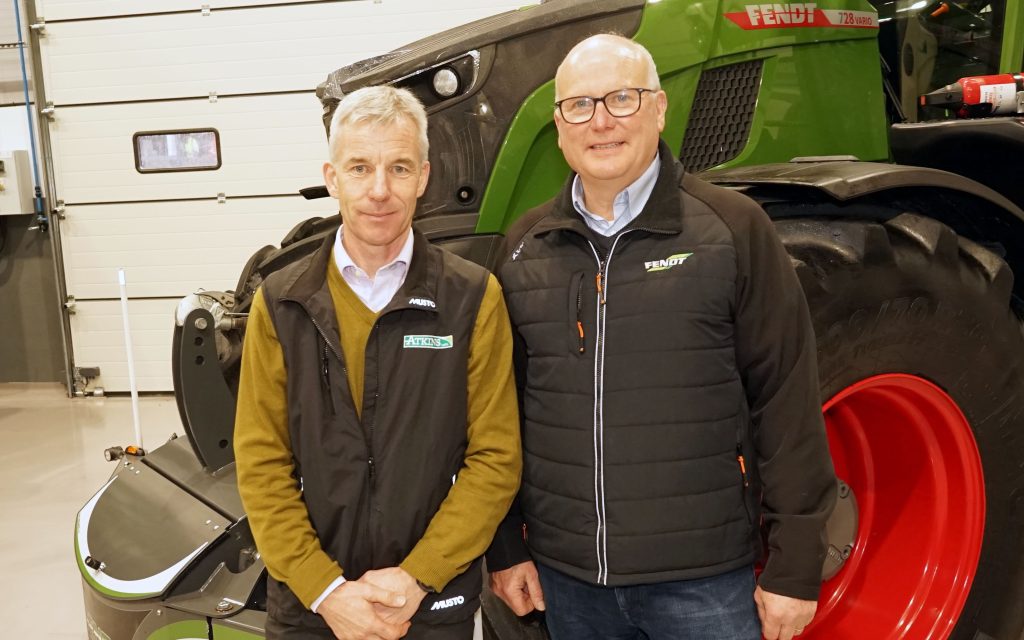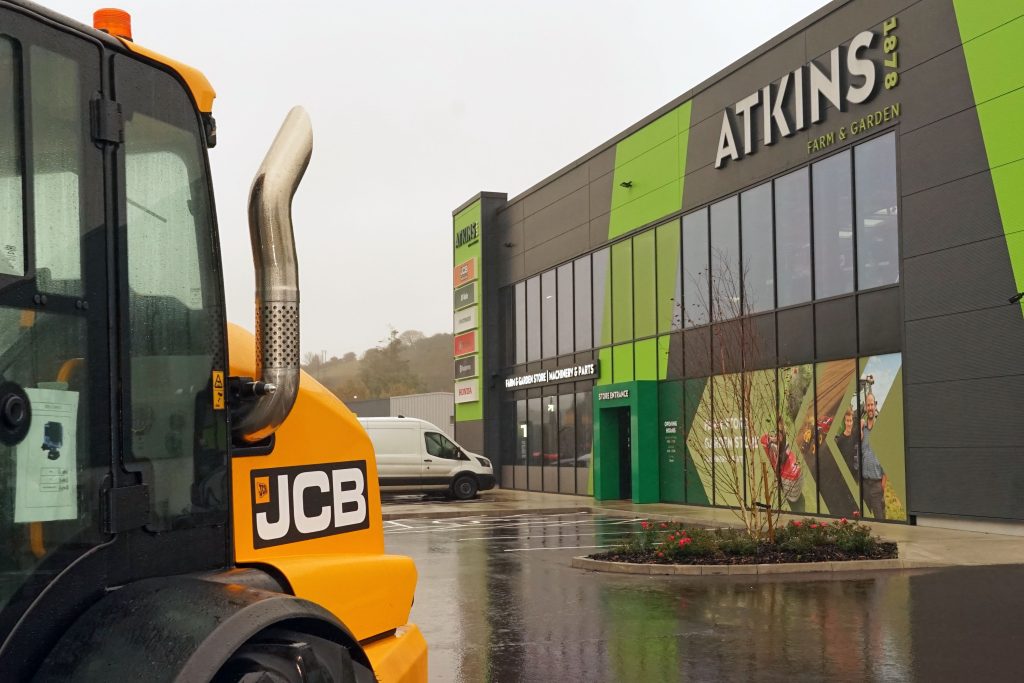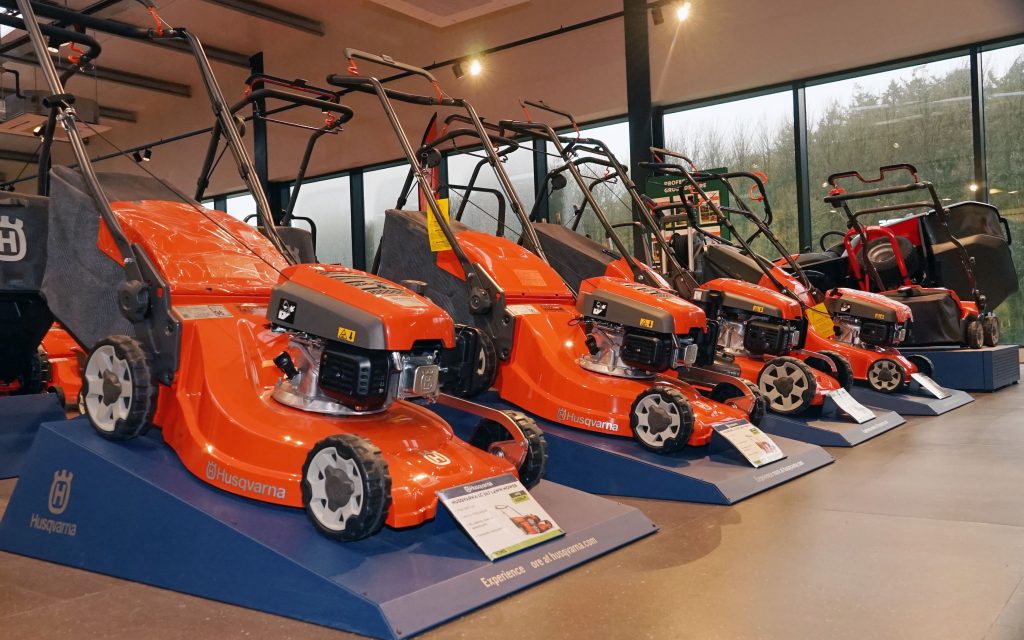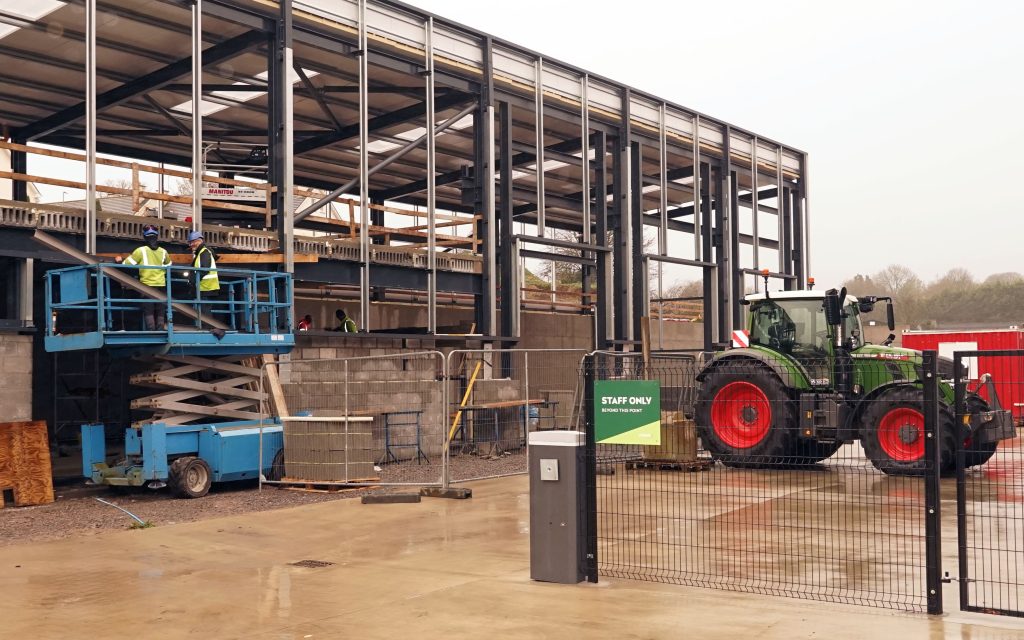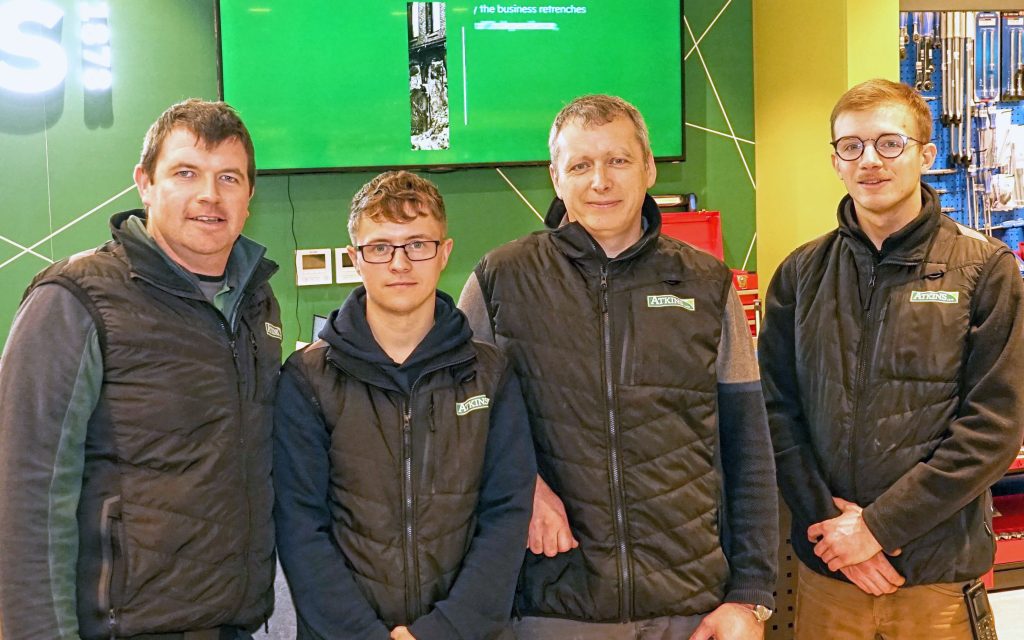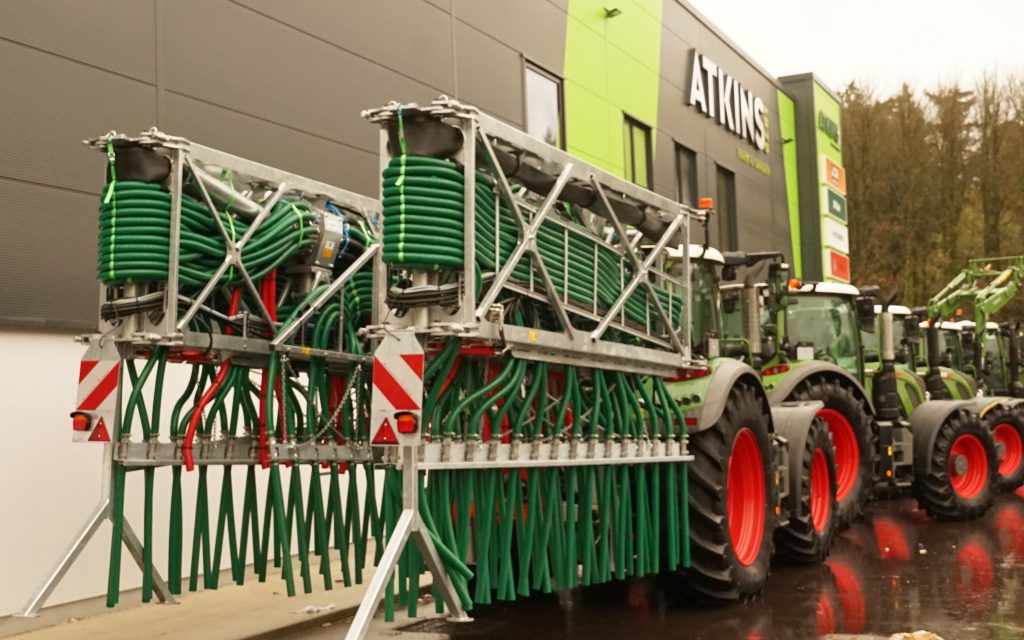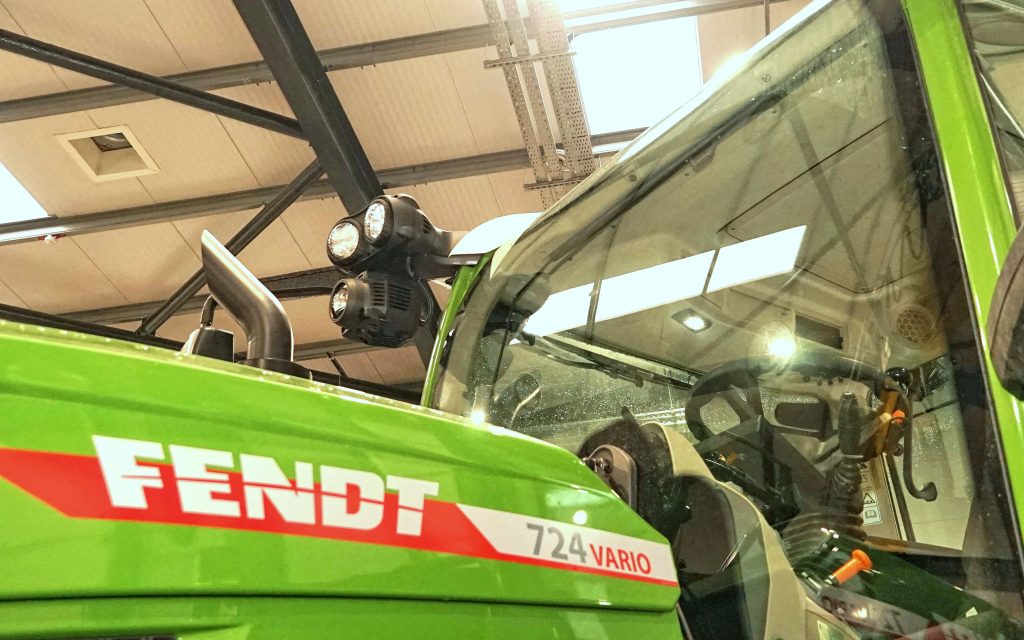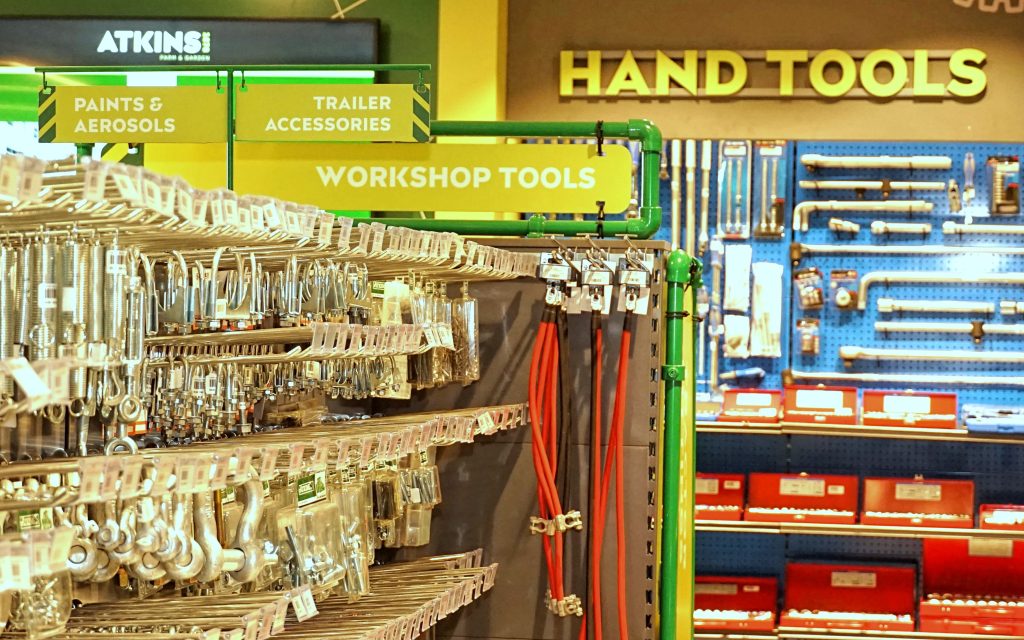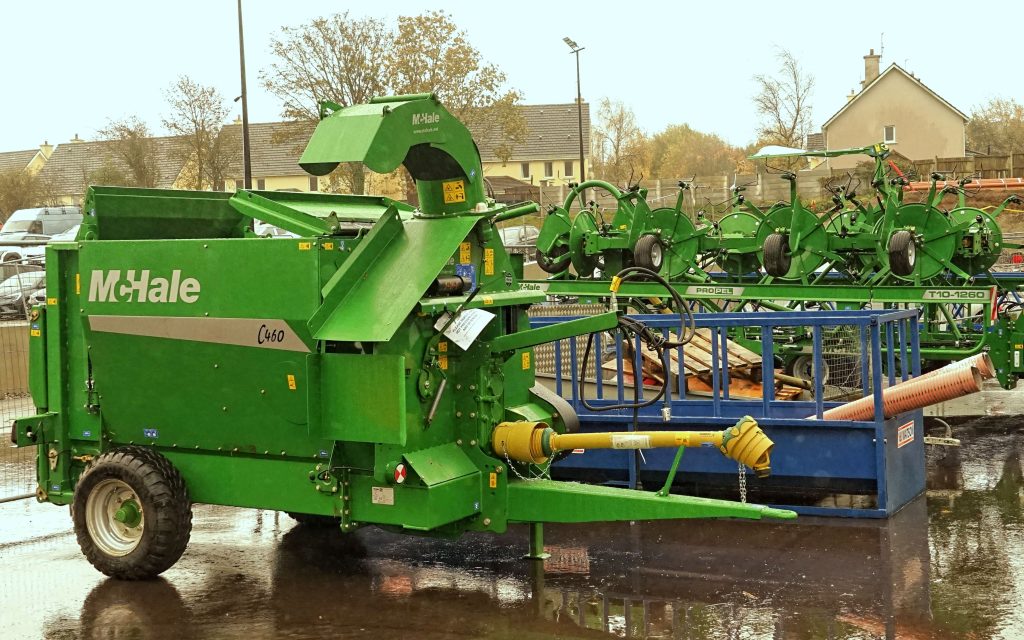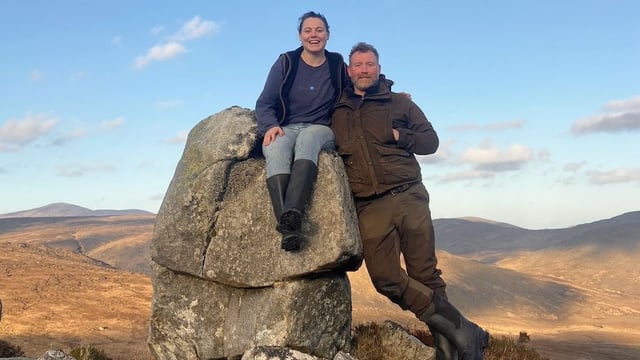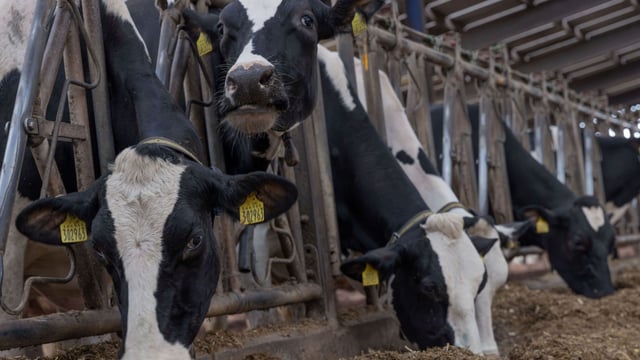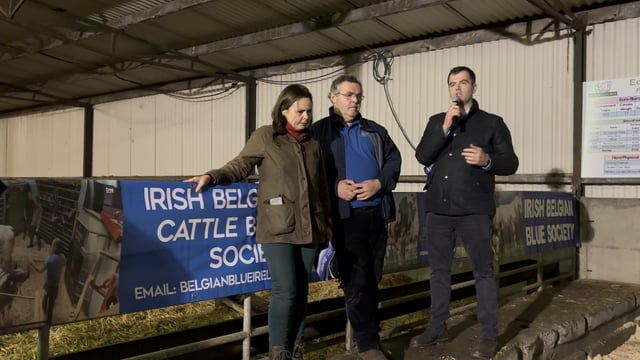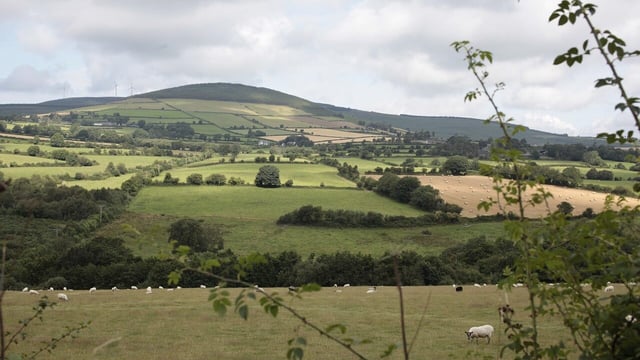Atkins rethinks the dealership concept at new Bandon depot
It was in 1878 that John Atkins started in trade as a seed merchant in Cork city and it is that business that still bears his name, though it is the family of his partner, Joseph Wolfe, who still retain ownership and control of the business 147 years later.
Atkins has not only survived but is now a solid fixture in the firmament of the Munster agricultural scene.
This position was recently reinforced with the redevelopment of its Bandon site.
The renewal of this branch took place over last winter and it opened for business earlier this year though - as yet - it is not quite finished.
It will be January before the premises is up and running as a fully functional service and repair centre, alongside its sales activities.
Keeping ahead
However, it is already clear is that this new building is not just a facelift to a tired old premises.
It is not, as the old one was demolished, but instead represents the next stage in the development of dealerships.
We are so often reminded of the progress of tractor design, yet to keep up with these advances, the premises from which they are sold and serviced also have to evolve.
Down in this quarter of Co. Cork, Atkins are showing how it can be done.
Mark Wolfe, who is now managing director of the company, saw the project through and it was he who gave Agriland a guided tour of what has been achieved.
As a result of Wolfe's work and close dialogue with the architects, builders and a retail consultancy company, the finished building impresses from the outside with its bold presence while inside it is clear that a good deal of thought has gone into how it should operate.
Division of tasks
The basic scheme is that the footprint space is divided into three equal parts.
The front part is devoted to sales, the middle is stores and service, while at the the rear are the workshops.
Agricultural products are catered for at ground level for both sales and service while the first floor is devoted to ground care and garden equipment, with the the same pattern of sales at the front and stores behind.
The rear third is the workshop area, which is two floors high with five bays.
One of these is devoted to garden equipment while the farm service engineers will be moving back from Cork city in January to start in the other four.
Behind the main building, a second is being constructed to accommodate machinery assembly and valeting, along with a wash bay and extra storage.
Again, these are scheduled to start working in January.
Large investment
When it comes to cost, Wolfe shied away from giving an exact figure, but it does run into the millions, with the final bill considerably higher than the estimate of just three years ago.
Yet the escalating expense has not detracted from the need to provide a quality work place for the staff.
On this front, the facilities match those of any other company in the machinery or vehicle trade.
This extends to a locker room with shower, so technicians do not have to go home covered with the day's dust and grime from malfunctioning combines, while a generous canteen provides room to cook as well as eat.
Whatever the final sum, the investment has produced a well thought-out base for Atkins in the area.
This has not gone unnoticed by the manufacturers they already represent, with two significant new additions to the range they already offer.
New suppliers
Fendt and McHale are prominent amongst the present agencies and these two have recently been joined by Vogelsang and JCB.
Vogelsang have become far more active in Ireland over the last few years and is now known for more than just its macerators.
Wolfe believes that with the more professional approach to slurry management that has emerged of late, Vogelsang will fill the demand for more specialist equipment.
Meanwhile, the decision by JCB to divide its sales structure between construction and agricultural products here in Ireland has fitted in well with Atkins' vigorous new approach to sales in south Co. Cork.
This is a pattern that will probably be repeated elsewhere, Wolfe believes, as once again the specialisation of machinery has caused these two markets to become quite different, though they will always share some similarities.
Brand competition
With JCB on board, Atkins now represents three major tractor brands - Fendt, Kubota and JCB, with its Fastrac.
On the face of it, while it might be thought that this would provoke some conflict when it comes to sales, each brand tends to serve a different segment of the market and none of the three have objected to the arrangement.
There is - according to Wolfe - a new sense of realism within the trade, as tractor sales volume is trending to decline while having a reputable presence on the ground is becoming no less essential.
Multi-brand dealerships are likely to become more common he believes, as manufacturers struggle to maintain a strong sales and service network.
Training on new tractors
There is another growing challenge for dealerships and that is the training of customers on the digital technology that is now inescapable in the machinery world.
Quite how this is to be achieved is still unsettled, but it is becoming apparent that the workload and skills that are now being imposed upon a dealership are quite different to those of what many are used to.
Although not totally finished, the rebuilt depot at Bandon is shaping up to be a huge asset for Atkins as well as the companies it represents.
It is smart and modern without being ostentatious, remaining accessible to all customers, whether it be for a humble lynch pin or a €300,000 tractor.
The clean and organised look reassures the customer of the latter that an expensive machine will be respected by the company from the day it is purchased, and is secure in its care.
It has been a just over a year now since the bulldozers moved in on to site, and it will be next spring when all are settled within the new facility.
2026 will at last see this new chapter fully open for one of Ireland's most respected machinery dealerships, and Wolfe and his staff are looking forward to what will unfold.

